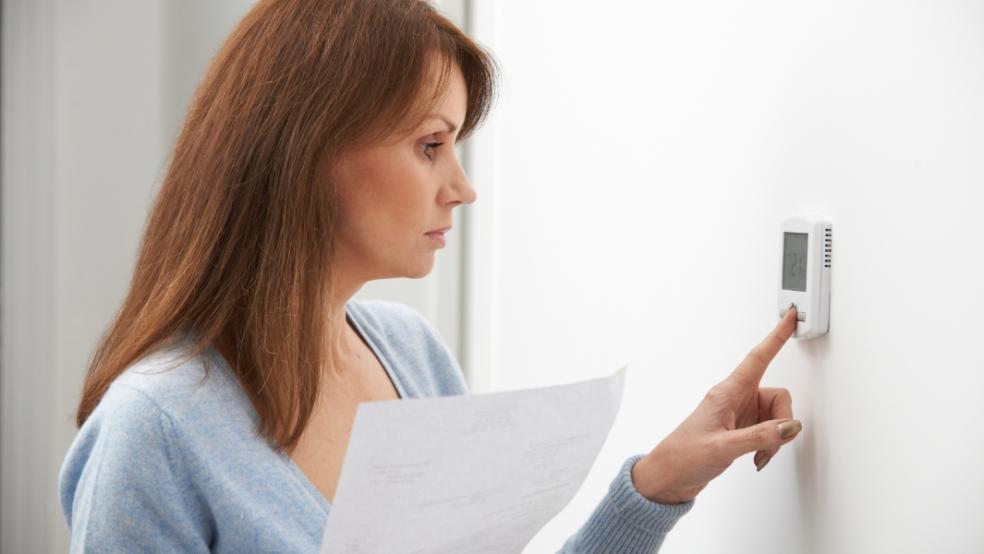
ONE IN FIVE HOUSEHOLDS TO CUT THEIR ENERGY USE TO COPE WITH BILLS THIS WINTER
- Despite Government help, one in five households (20%) – over five million homes – will only cope with rising bills this winter by cutting their energy use[1]
- Nearly nine in ten (86%) have already made changes around the home to prepare for winter, with a quarter (26%) installing insulation[2]
- Two in five (43%) will turn down their thermostat[2], with a third (32%) pushing back the day they usually turn on their heating[3]
- A third (35%) of homes will cut their use of the oven[3], with over a quarter (28%) investing in energy efficient air fryers and slow cookers[2]
- To help with rising bills, Uswitch.com today launches Utrack, a free mobile app that connects to your smart meter to help track home energy use and find ways to save money
- Ahead of energy prices rising from 1st October, Uswitch is encouraging households ‘Check, Track and Change’ their energy usage
A fifth of households (20%) will only be able to cope with rising bills this winter by cutting back their energy use[1], according to new research from Uswitch.com, the comparison and switching service.
Despite the Government’s energy price guarantee and £400 bill support, energy bills are still set to increase from the 1st October, and bill payers could still pay on average £237 more for energy over the three coldest months than they did last year[4].
Another three million households – more than one in ten homes (11%) – say they will not be able to cope with rising bills whatever they do[1].
The rising cost of energy has led to nearly nine in ten (86%) making at least one change around their home to prepare for winter, with a quarter (26%) having had insulation installed[2].
The findings come as Uswitch responds to the energy crisis with the launch of its new app, Utrack, which connects to a home smart meter, helping households track and reduce their energy use, to save money on their bills.
The free mobile app is designed to be linked to a home smart meter to help consumers understand their home energy consumption, monitor when they are using the most power and find ways to cut costs around the home.
Turning appliances off at the wall is the most common way people will reduce their energy consumption this winter and will be favoured by 53% of households, followed by running their washing machine at a lower temperature, which 47% of homes are doing. Nearly half (46%) of bill-payers plan to turn the thermostat down, with a similar proportion using their washing machine less (44%)[2].
Top ten changes households are making to prepare for winter
| Action | Total | Already done | Planning to do |
| Turn appliances off at the wall | 53% | 35% | 17% |
| Run the washing machine at cooler temperature | 47% | 32% | 15% |
| Turn the thermostat down | 46% | 29% | 17% |
| Use washing machine less | 44% | 29% | 15% |
| Upgrade light bulbs to LEDs | 42% | 30% | 12% |
| Start taking showers instead of baths | 36% | 27% | 8% |
| Stop / reduced using a tumble dryer | 35% | 24% | 11% |
| Start using the microwave instead of the oven | 30% | 21% | 10% |
| Install insulation | 29% | 26% | 3% |
| Buy a slow cooker | 28% | 23% | 5% |
Source: Uswitch.com
A third (35%) say they will reduce the number of times they use their oven to cut their energy use this winter[3]. More than a quarter (28%) will use a more efficient slow cooker, while the same proportion will also invest in an air fryer[2].
Nearly one in three bill-payers (32%) are also planning to push back the day they usually turn on their heating and 37% will only heat certain rooms in their home[3].
Ben Gallizzi, energy expert at Uswitch.com, said: “Energy bills are still due to rise in October despite the Government support, and we know that many people are feeling anxious about the winter ahead.
“Keeping on top of your home energy consumption will be especially important during the coldest months when the heating comes on.
“With more people looking at how they can cut down their energy bills this winter, getting a deeper understanding of your household usage will help you find ways to save money around the home.”
Ahead of 1st October, Uswitch is encouraging households to follow its three-step Check, Track, Change plan to help prepare for the winter.
CHECK, TRACK, CHANGE: THREE STEPS TO PREPARE FOR WINTER ENERGY PRICE RISES
Step One - Check
- Check your meter readings are up to date. If you don’t have a smart meter, regularly take meter readings and submit them to your supplier. This ensures that your bill is accurate and lets your supplier modify your direct debit to match your usage.
- Check your other household bills. At the moment you might not be able to save when it comes to your energy, but that doesn’t mean you can’t cut costs across your other household bills. Reviewing your broadband, TV and mobile packages, especially if you are out of contract, could be a quick and simple way to reduce your monthly outgoings. For example, broadband users whose deal has expired can save £162 a year by switching to a new deal.
- Check what energy support schemes or grants you, or any vulnerable friends or relatives, may qualify for. If you are struggling with your bills, there is help available from the Government and energy suppliers. The Warm Home Discount scheme will open for applications in November, but many suppliers have their own customer support funds, with some offering home insulation and energy-efficient white goods.
Step two - Track
-
Track your energy usage for free with Utrack. Utrack by Uswitch is a new app to help you manage your home energy costs. With features focused on controlling your home energy by connecting to your smart meter, it could help you reduce the cost of your household bills. With Utrack, you can:
- Track your energy across the day and monitor changes in your energy spend
- Get dynamic energy insights, such as peak usage times
- Calculate potential savings with handy household tips
- Download for free here
- Track your energy settings. Even if you don’t have a smart meter, you can still monitor how often you use energy-intensive appliances, such as your washing machine, tumble dryer and dishwasher, and consider which settings you use. See if you can save money by running them only when full, or using eco settings and lower temperatures. Some tariffs will charge you less if you run them overnight.
Step three - Change
- Change the way you use your appliances. Tracking your usage may help you see how changing some habits can make a difference in your home. Whether that’s setting your wash cycle at a lower temperature, ditching the tumble dryer, or running the dishwasher only with a full load, small changes may have a big impact on your next meter reading.
- Change your thermostat setting. For those who can, turning your thermostat down by just one degree could reduce your energy bill by up to ten per cent. The Energy Saving Trust recommends heating your home to between 18 to 21 degrees Celsius during winter while the World Health Organisation suggests 18 degrees for healthy people.
-
Change your door seals and window dressings. Draught-proofing is a quick and cost-effective way to prevent heat escaping from your home, which can save you around £45 a year. Fitting door seals between doors and frames, attaching brushes under draughty external doors and using chimney balloons will all keep the heat in. Thick curtains can also help prevent heat loss from windows.
Find out how to save on your household bills here.














